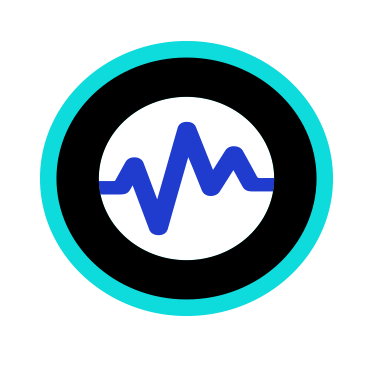Navigate the Resources
ORIGINAL VOICE.HEALTH CONTENT
Industry players warn that while voice technology has the ability to reach a larger audience, it must be implemented with privacy as a top priority.
“As we’ve seen how voice has sort of become this sort of natural technology that we’ve seen in the consumer space, there’s a power to bring that exciting effort to what’s happening in the consumer domain into health care,” said John Brownstein, chief innovation officer at Boston Children’s Hospital.
“Smart speakers have a huge opportunity to become the medical hub of the home,” said John Brownstein, chief innovation officer at Boston Children’s Hospital. “It’s important to start benchmarking the ability of these tools to understand medical terms so they can continue to evolve to serve patients.”
John Brownstein, the chief innovation officer at Boston Children’s Hospital, has likewise seen voice apps evolve over the years…the addition of HIPAA compliance allowed Brownstein’s team to take things much further. “We could finally start rolling out use cases where there was a direct connection to the care that a patient was being provided at our hospital,” he said. The Boston hospital’s latest voice effort focuses on helping patients recover after cardiac surgery.
Kristi Ebong, Orbita SVP Strategy and GM Healthcare Providers, is taking part in a panel discussion at the healthcare investment conference MedCity INVEST in Chicago April 23-24 called, “What Can Alexa/Voice Do for Healthcare?”
Artificial-intelligence assistant meets privacy rules, giving device a potential daily role with patients. New features let Alexa schedule urgent-care appointments, check health-insurance benefits, read blood-sugar results and handle other health-care tasks.
Dr. John Brownstein, chief innovation officer at Boston Children’s Hospital, which uses one the the new healthcare features, says that: “From our view, [Alexa’s data protection] makes for great opportunity in healthcare, because what we’re trying to do is make it easier for patients to access information, easier for patients to track their health and easier for patients to interact with their healthcare system”.
Amazon, which launched the program on Thursday, said the skills are all compliant with the federal Health Insurance Portability and Accountability Act, which ensures that personal health care information is protected.
“Our view is we’re trying to make things as simple for our patients as possible and bridge the gap with how people engage with us in the hospital, but also at home,” John Brownstein, chief innovation officer at Boston Children’s Hospital, said in an interview. “As these technologies become natural and easy to engage with, it's a great opportunity for us to utilize them to provide to the best possible patient experience.”
Boston Children’s Hospital is also using the device to allow parents to give its care teams updates on a sick child’s recovery and allow patients to schedule appointments. Livongo, a digital health company specialising in chronic conditions, will integrate Alexa with the rest of their devices, allowing members to query their blood sugar readings and receive personalised “health nudges” on the device.
Amazon today announced a limited number of voice apps for the Alexa Skills Kit by health care companies like Cigna and Boston Children’s Hospital that operate in compliance with the U.S. Health Insurance Portability and Accountability Act of 1996 (HIPAA).
Amazon unveiled software on Thursday that allows health care companies to build Alexa voice tools capable of securely transmitting private patient information, a move that opens the door to a broad array of uses in homes and hospitals.
Now, Boston Children’s has a new HIPAA-compliant skill dubbed “ERAS” for kids and their families that are discharged from the hospital. Through Alexa’s voice assistant, patients and caregivers can ask specific questions about their case from the care team, and doctors can remotely check in on the child’s recovery process.
The announcement is Amazon’s latest effort in making inroads into the nation’s $3.5 trillion health care market.
“Boston Children’s Hospital has long believed that voice technology has the potential to substantially improve the healthcare experience for both consumers and clinicians. We began this journey with one of the first Amazon Alexa skills from a hospital four years ago and are thrilled to participate in the initial launch of Amazon Alexa’s HIPAA-eligible service for developers,” said John Brownstein, chief innovation officer, Boston Children’s Hospital, in a statement.
Back in 2018, Amazon announced it was teaming up with JPMorgan and Berkshire Hathaway to create technological solutions to improve healthcare. Turns out it just needed to ask Alexa.
Today, the company announced six new HIPAA-compliant Alexa skills are available to help patients and caregivers alike. The new skills come courtesy of healthcare companies like Cigna and Boston Children’s Hospital that operate in compliance with HIPAA, or the U.S. Health Insurance Portability and Accountability Act of 1996.
Amazon’s Alexa voice assistant has a new trick: transmitting secure patient information between patients and caregivers. Developers can now use the Alexa Skills Kit to build HIPAA-compliant apps, opening the door for hospitals, insurers, digital health startups and others to manage patient data through voice.
The My Children’s ERAS Skill will first be made available to parents and caregivers of children that have undergone cardiac surgery. It allows parents and caregivers to conduct digital check-ins through Alexa, providing care teams with updates on their child’s recovery progress, including activity level, appetite, and pain management. Parents and caregivers can also use the skill to access information regarding the child’s upcoming post-op appointments.
John Brownstein, chief innovation officer at Boston Children’s Hospital, is bullish on the prospect of voice as a game changer in healthcare. “Healthcare is at a tipping point with voice,” Brownstein said in an interview with Healthcare IT News. “We haven’t seen it transform any industries. Healthcare could be a leading vertical in voice apps.”
Other leaders in innovation are less optimistic about how successful the first applications of voice will be. Sara Holoubek, CEO of Luminary Labs, remarked that “2019 will be the year of bad voice tech experiences,” at the Boston Children’s Voice. Health Summit. Of course, very few technological advancements are perfect right from the beginning, so even if 2019 is the year of voice tech failures, 2020 may be the year of successes.
Voice as a user interface in healthcare tech has been gaining ground in recent years and will be a spotlight at the HLTH conference through a partnership with Boston Children’s Hospital.
HLTH 2019 will feature a Voice.HLTH track, a voice hackathon as part of HACK/HLTH and a showcase exploring the impact of voice technology in healthcare. The Voice Technology in Healthcare Initiative, born out of Boston Children's Hospital Innovation & Digital Health Accelerator, seeks to accelerate the adoption of voice-assisted technologies in healthcare.
In early 2016, Boston Children’s Hospital was among the first healthcare organizations to leverage Amazon Alexa with KidsMD, a skill that helps parents understand their child’s symptoms, seek basic medication dosing guidance, or decide whether an in-person visit is necessary.
“Hospitals across the nation are piloting voice-enabled smart speakers in patients’ rooms, including Cedars-Sinai Medical Center in Los Angeles and Boston Children’s Hospital. These institutions are hoping that smart speakers will make patients more comfortable, help staff stay organized, and, in some cases, keep people out of hospitals and emergency rooms altogether.”
In this episode, Teri welcomes Devin Nadar, the Partnerships Manager for the Innovation and Digital Health Accelerator at Boston Children’s Hospital. If you have been following the voice first health scene you know that Boston is a hub for this type of innovation and Boston Children’s Hospital is certainly at the forefront of this.
In 2018, Boston Children’s Hospital conducted an online survey of 113 pediatricians across the U.S. on their use of voice technology. While the complete survey has yet to be published, a few of the highlights are provided in advance of full publication.
The Voice.Health Team sorted 37 startups building products at the intersection of voice and healthcare by how they are tackling this market, in hopes of giving those interested in learning more about this exciting frontier an opportunity to check out what voice-based innovations might hit their office, clinic, or home in the next several years.
Boston Children’s Hospital launched the KidsMD Alexa skill in early 2016 making it a pioneer among healthcare providers experimenting with voice assistants. Devin Nadar is partnerships manager for innovation and the digital health accelerator at Boston Children’s Hospital and will speaking about voice technology at the upcoming Voice of Healthcare Summit at Harvard Medical School on August 7th. Below is the transcript of a recent email interview with Devin about what motivated Boston Children’s to get started with voice, what they have learned and what’s next.
At Boston Children’s Hospital, we feel strongly that voice-assisted technology will play a key role in healthcare, both within and outside of the clinical setting. But as with any technology, it is important to make sure that you leverage voice appropriately based on the problem or pain point you are trying to solve. To that end, below we share some learnings and considerations in determining whether voice is the right platform for your project.
ALL CONTENT
Industry players warn that while voice technology has the ability to reach a larger audience, it must be implemented with privacy as a top priority.
Vanderbilt University Medical Center will take a major step next month to make this vision a reality with the launch of a pilot to demonstrate a prototype of such a system, which leverages Nuance’s AI-based Dragon Medical Virtual Assistant technology integrated with VUMC’s Epic EHR.
The U.K.’s National Health Service (NHS) has partnered with tech giant Amazon to enable patients to access verified health information using Alexa devices.
“As we’ve seen how voice has sort of become this sort of natural technology that we’ve seen in the consumer space, there’s a power to bring that exciting effort to what’s happening in the consumer domain into health care,” said John Brownstein, chief innovation officer at Boston Children’s Hospital.
Saykara today announced the release of Kara 2.0, an AI-powered healthcare assistant that further simplifies the documentation process for physicians.
As the technology matures, digital assistants offer plenty of promise for healthcare organizations.
On the latest episode GeekWire Health Tech podcast, we have the second installment in a two-part series on the rise of voice assistants in healthcare. We’ll hear from Saykara and Tuzag, two Seattle-area startups that are creating a future where voice assistants make healthcare more human by freeing doctors from their keyboards and even forming relationships with patients.
In the future, nearly twice as many millennials will interact with voice assistants on a monthly basis in-comparison to their Generation X counterparts. This means that digital voice assistance has the potential to become mainstream and do some amazing things in the process.
“Smart speakers have a huge opportunity to become the medical hub of the home,” said John Brownstein, chief innovation officer at Boston Children’s Hospital. “It’s important to start benchmarking the ability of these tools to understand medical terms so they can continue to evolve to serve patients.”
Geisinger is launching a new study to test if a novel technique can detect flare-ups or exacerbations experienced by patients with chronic obstructive pulmonary disease (COPD) by listening to their voices through their smart phones.
Unified Physician Management introducing AI-powered, voice-enabled tool across a network of over 1,500 women's health providers to maximize clinician time with patients.
Voice is the most obvious next step of user interface that is going to radically change the way we interact with technology in healthcare services. You ain’t heard nothin’ yet.
Various investors, including Stanley Black & Decker's corporate venture capital arm, Samsung Ventures, Civilization Ventures and others took part in the round.
The product (codenamed Dylan) is being developed by Amazon's hardware development team Lab126 and its Alexa division. Designed to be worn on the wrist, the device seemingly has a form factor similar to a smartwatch.
John Brownstein, the chief innovation officer at Boston Children’s Hospital, has likewise seen voice apps evolve over the years…the addition of HIPAA compliance allowed Brownstein’s team to take things much further. “We could finally start rolling out use cases where there was a direct connection to the care that a patient was being provided at our hospital,” he said. The Boston hospital’s latest voice effort focuses on helping patients recover after cardiac surgery.
Kristi Ebong, Orbita SVP Strategy and GM Healthcare Providers, is taking part in a panel discussion at the healthcare investment conference MedCity INVEST in Chicago April 23-24 called, “What Can Alexa/Voice Do for Healthcare?”
With the recent news from Amazon, that Alexa can be used for HIPAA compliant skills, the opportunities are broader than simple healthcare education or query and can include two-way asynchronous communication and data collection.
Since deploying speech recognition and integrating it with its athenahealth EHR, the group practice has seen the average note completion time drop from 4.8 minutes to 1.6 minutes per note.
Artificial-intelligence assistant meets privacy rules, giving device a potential daily role with patients. New features let Alexa schedule urgent-care appointments, check health-insurance benefits, read blood-sugar results and handle other health-care tasks.
Dr. John Brownstein, chief innovation officer at Boston Children’s Hospital, which uses one the the new healthcare features, says that: “From our view, [Alexa’s data protection] makes for great opportunity in healthcare, because what we’re trying to do is make it easier for patients to access information, easier for patients to track their health and easier for patients to interact with their healthcare system”.
Amazon, which launched the program on Thursday, said the skills are all compliant with the federal Health Insurance Portability and Accountability Act, which ensures that personal health care information is protected.
“Our view is we’re trying to make things as simple for our patients as possible and bridge the gap with how people engage with us in the hospital, but also at home,” John Brownstein, chief innovation officer at Boston Children’s Hospital, said in an interview. “As these technologies become natural and easy to engage with, it's a great opportunity for us to utilize them to provide to the best possible patient experience.”
Boston Children’s Hospital is also using the device to allow parents to give its care teams updates on a sick child’s recovery and allow patients to schedule appointments. Livongo, a digital health company specialising in chronic conditions, will integrate Alexa with the rest of their devices, allowing members to query their blood sugar readings and receive personalised “health nudges” on the device.
Amazon today announced a limited number of voice apps for the Alexa Skills Kit by health care companies like Cigna and Boston Children’s Hospital that operate in compliance with the U.S. Health Insurance Portability and Accountability Act of 1996 (HIPAA).
Amazon unveiled software on Thursday that allows health care companies to build Alexa voice tools capable of securely transmitting private patient information, a move that opens the door to a broad array of uses in homes and hospitals.
In a statement to WIRED, Amazon said that while the company applies multiple layers of security to all skill data—including encryption, access controls, and secure storage in the Amazon cloud—the health care skills data will be treated differently to meet HIPAA requirements. The company did not specify what additional measures are in place to ensure that users’ personal health information is properly identified and access to it is controlled and properly audited.
Now, Boston Children’s has a new HIPAA-compliant skill dubbed “ERAS” for kids and their families that are discharged from the hospital. Through Alexa’s voice assistant, patients and caregivers can ask specific questions about their case from the care team, and doctors can remotely check in on the child’s recovery process.
The announcement is Amazon’s latest effort in making inroads into the nation’s $3.5 trillion health care market.
“Boston Children’s Hospital has long believed that voice technology has the potential to substantially improve the healthcare experience for both consumers and clinicians. We began this journey with one of the first Amazon Alexa skills from a hospital four years ago and are thrilled to participate in the initial launch of Amazon Alexa’s HIPAA-eligible service for developers,” said John Brownstein, chief innovation officer, Boston Children’s Hospital, in a statement.














































